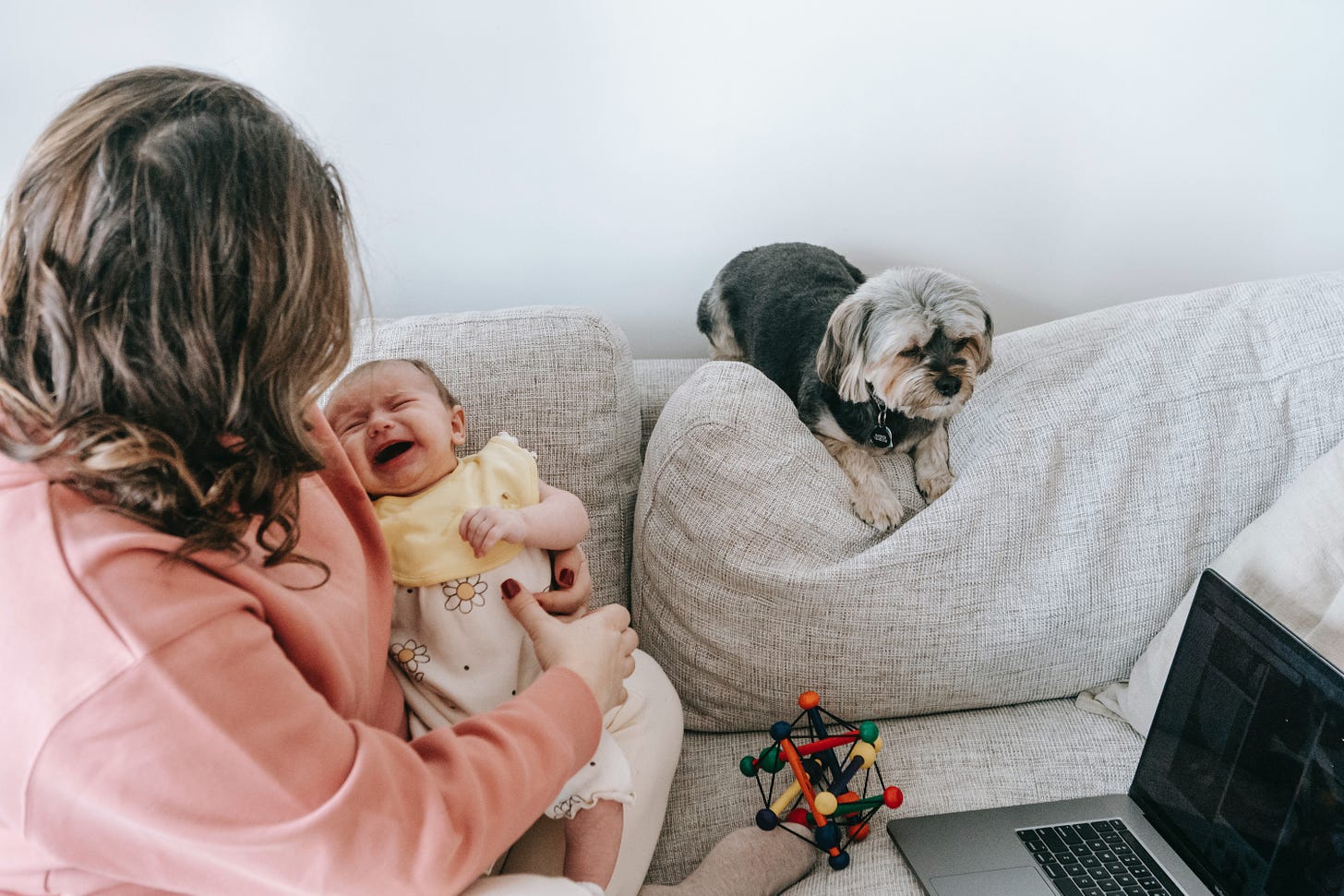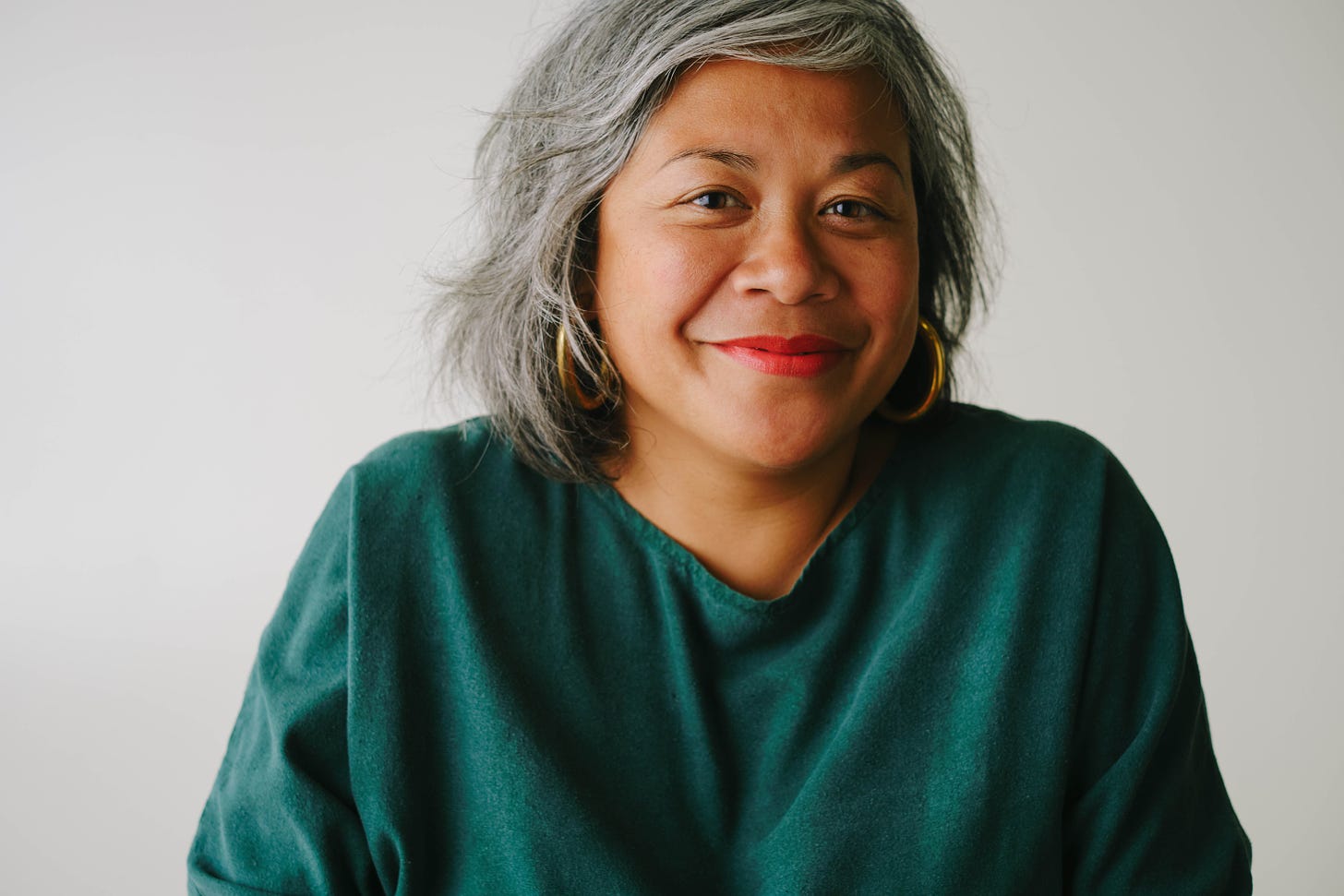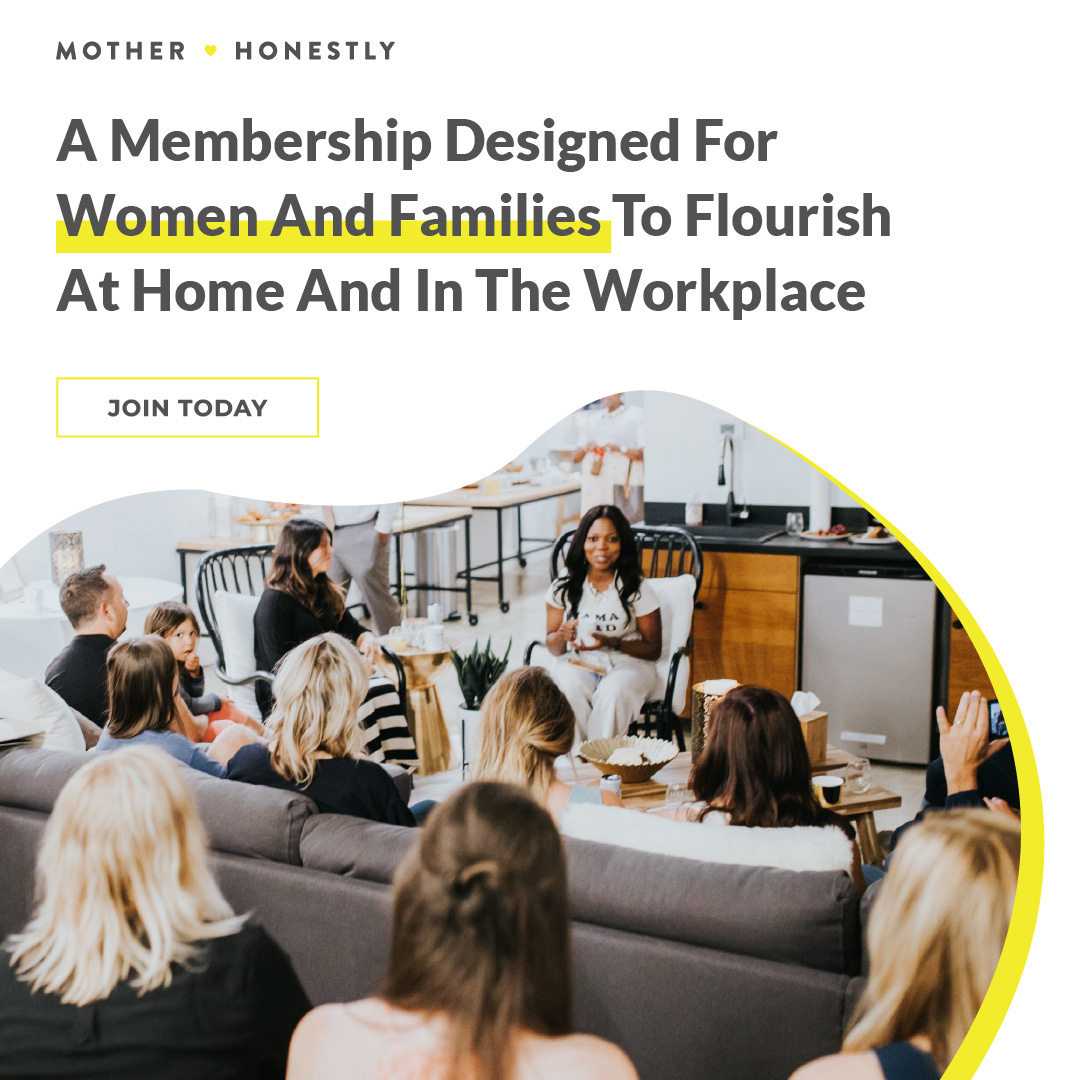Is Anyone Coming to Save Us?
From a formula shortage to a child care crisis, American moms are struggling—but help is hard to find.
It’s a tough time to be a mom in America.
It will be at least a couple months before the formula shortage eases. In the meantime, parents are spending hours a day scouring store shelves and stalking social media to find the brand their baby needs. Two children in Tennessee were hospitalized when their parents couldn’t get the amino-acid-based formula they require.
Meanwhile, Congress looks no closer to providing families with paid family leave or substantially easing the child care crisis. No one is coming to save us, indeed. It really feels like we’re in it alone.
But we shouldn’t be.
That’s the core message of Essential Labor: Mothering as Social Change by Angela Garbes. The author of the critically-acclaimed Like a Mother, Garbes says she didn’t want to write another book about motherhood. Then the pandemic happened, and parents were pushed to the breaking point as our care network unraveled. The crisis highlighted a long-overlooked truth: caretaking is essential, and yet we still assign it so little value. It allows us to overlook the people who perform it, and it enables everything from formula shortages to low wages for care workers.
That’s why Garbes wants to change how we see motherhood—not as an identity but as an action. “While 'mother' is an important identity for many women who still provide the majority of care to children in America, no one cares for children entirely on their own,” she writes. “My perspective has grown to consider the work of raising children as Mothering, an action that includes people of all genders and non-parents alike."
Her book explores why this shift would be transformative for moms, children and everyone else. Here, she shares a bit about why:
Angela Garbes, author of Essential Labor: Mothering as Social Change. Photo by Elizabeth Rudge.
In the book, you talk about how our society values (paid) work and how that impacts the value (or lack thereof) we place on mothering/caregiving. Can you tell me more?
American society values work in terms of how much we produce, how efficiently we can do it. It tells us our output is our worth. Caregiving, in this light, is inefficient. But it pays dividends. If we were to think about work in terms of our humanity—making people feel dignified, valued and whole—then caregiving is the most important work we can do with our time on earth. The economy could stand to bend to the will of decency and care. What if we built a system that lets us actually care for the people who care for us?
"What do we lose, exactly, when mothers disappear from the world for a year, or more?" You ask this as a rhetorical question in the book. What is your answer today?
We lose so many contributions to public and professional life, whether that’s mothers’ scientific research, customer service skills, project management, or (especially heartbreaking to me) creativity and art. We lose exactly what our society already badly needs: workplaces and institutions shaped with the knowledge that American families need flexibility, paid leave, affordable child care and health care.
What are some actionable steps readers can take to continue the work of valuing mothering and care work?
I really believe we need everyone’s contributions to this work and that everyone can do something to help. On the most basic level, mothers and caregivers should always talk about mothering as WORK that must be respected and taken seriously. It might seem easy, but it is so challenging in the face of a society and people who dismiss care work and take it for granted. If those of us who mother see ourselves as workers in a struggle, not just individuals toiling away in our homes, we have a better chance of making collective change. If you have the financial means to pay your nanny (nannies are among the lowest paid workers in the country), babysitter, child care provider, house cleaner, or in-home caregiver more, do it!
That will make an immediate and material difference in their lives. Think of ways that you can ease the caregiving burden of others: watch your friends’ kids for a few hours each week, pick up some extra groceries for them, cook them a meal, offer to help them in the garden. Domestic work is unending and we could all use the help—and often some company while doing it! On a broader level, support organizations that are working for paid family leave, affordable child care and health care. You can do this without giving money: call lawmakers, sign petitions, volunteer, ask them directly what you can do. A lot of these activities don’t take that much time AND they have the added benefit of making you feel useful.
BECOME A MEMBER:
Our digital membership helps you flourish at home and in the workplace with:
Access to toolkits, worksheets, resources to manage your household and career.
Monthly Motherhood Conversations with women in the workforce in similar life-stages. Coming up on April 21st!
Curated digital events to support your journey personally and professionally.
100+ hours of video content on childcare, household management, outsourcing, managing burnout, and more.
JOIN US:
The Level-Up summit is a must-attend event for women who are ready to reclaim their career mojo and move up the ladder. Register here and join us on June 3.
BOOK A 1-ON-1 CONSULTATION:
Kaitlin Soule is a therapist specializing in women’s mental health, motherhood and anxiety. Her book, A Little Less of a Hot Mess, invites women to reclaim their identity and improve their mental health with a practical framework called imperfect growth and evolution™. Kaitlin is also a mom to three, podcast host, media contributor, consultant and speaker. Kaitlin started Well Notes For Her, an online platform, to empower today’s women with practical mental health guidance so they can step into their identity as mothers and (so much) more. Book Kaitlin today!
LOVE TO SEE IT
Spanish women might soon be able to take menstrual leave. The country’s government approved a draft law that would grant women days off work if a doctor diagnoses them with severe menstrual pain. Schools will also have to provide sanitary pads to students who request them. Via The New York Times.
HATE TO SEE IT
California’s board diversity law is struck down. A judge ruled that the law, which requires that public companies headquartered in the state have at least one woman on their boards of directors, is unconstitutional under the equal protection clause in the state’s constitution. Since the law was enacted in 2018, the percent of board seats held by women at California-based Russell 3000 public companies doubled from 16% to 32% at the end of 2021, according to Fortune.









My friend's wife created an incredible site https://freeformula.exchange/home that helps families looking for formula and those who have some to share. It's getting a lot of coverage, including this latest national nod from CBS News. https://www.cbsnews.com/news/baby-formula-exchange-matches-products-with-families-in-need/?fbclid=IwAR0-lhiKT5o_tbJhviv6oPEe2rW7BBUEG99uc4A4vbiHie2_7MtTDArlT60#l3apbee8rd41hddy0d